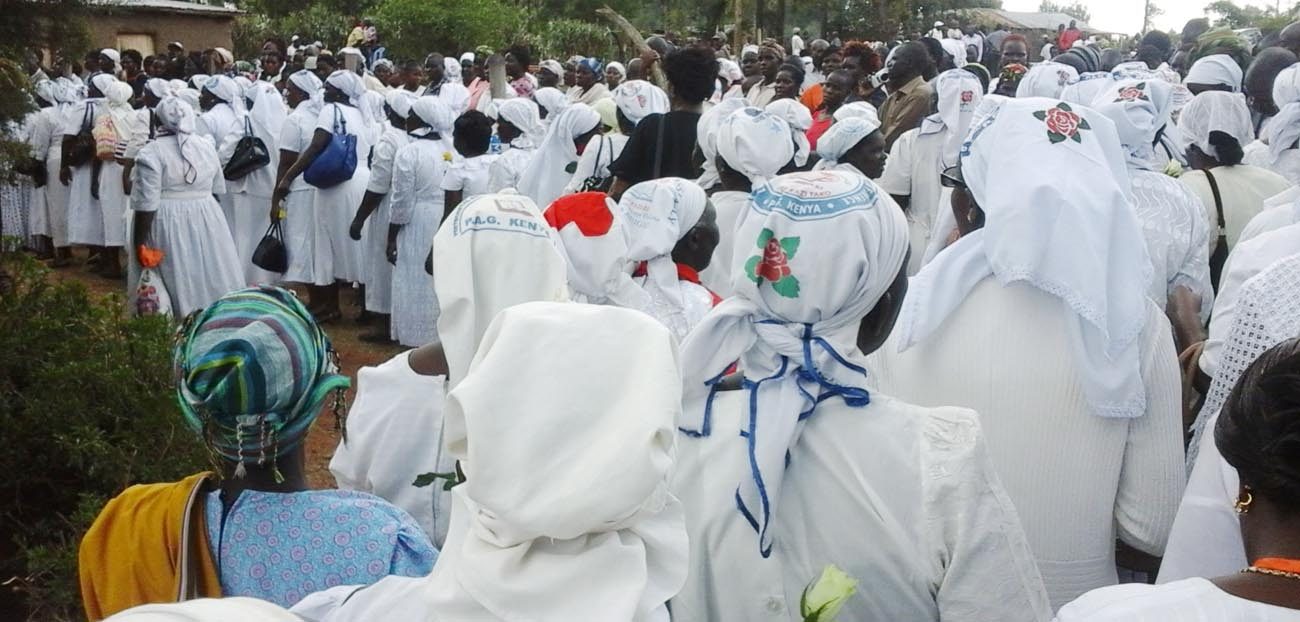NAIROBI, Kenya (CNS) — Flanked by his three wives and 12 children in his grocery shop in Kenya’s biggest slum, Kibera, Gilbert Wandera said men should marry multiple wives to prevent single motherhood and to ensure that children have fathers in their lives.
“Getting a second or third wife is not a sin before God,” said Wandera, 38, who was a catechist, or Catholic religion teacher, for 10 years before the church expelled him in 2013. “Men should go ahead and marry multiple wives like the biblical Solomon, who married many wives candidly.”
[hotblock]
Polygamy is common in traditional communities in the East African country. But increasingly, many other Kenyan Christians share Wandera’s point of view.
In 2014, President Uhuru Kenyatta signed a law legalizing polygamy, despite criticism from women’s groups. Since then, proponents have called on male Kenyans to marry many women.
“If you can sustain five wives, have them,” said Gathoni Wamuchomba, a lawmaker from Kiambu in central Kenya and an aide to Kenyatta. “If you are a man and you are in a position to bring up many children, do it.”
Wamuchomba said raising children in the absence of their fathers leads to serious social problems, including increasing numbers of families living on the streets.
“We need to be honest. These children who are raised by single mothers, where are their fathers?” she asked.
But Catholic leaders in Kenya, where about 9 million of the country’s 47.6 million people are Catholic, oppose the practice.
[tower]
Polygamy “is against the will of God and we must desist from it,” the Kenya Conference of Catholic Bishops said in a recent statement. “We should uphold human dignity, and especially the dignity of the woman.”
Noting that the church upholds the “sanctity of the family unit,” Bishop Philip A. Anyolo of Homa Bay, conference chairman, said Kenya’s leaders should work on “better ideas of promoting and protecting family values.”
It is “not proper for some of our leaders to purport to propose solutions (to social problems) by suggesting alternative forms of family,” he said at a news conference at the end of the bishops’ April plenary meeting in Nairobi.
“The dignity of the family must not be distorted by any human power, nor be changed for personal or social pleasure,” the bishops’ statement said, noting that the “protection and respect of the institution of the family is a responsibility of the state and the church.”
“Every citizen must learn to respect the family,” it said.
Archbishop Martin Kivuva Musonde of Mombasa said a sin is still a sin even if it is committed by many people.
“If everybody is stealing, does that mean we have to make it legal?” he asked at the news conference.
In the Catholic Church, polygamists may not receive the Eucharist, and polygamists who wish to be baptized must abandon the practice first. However, some other Christian churches take a different approach.
Thirty years ago, under pressure from bishops in Kenya and Uganda, the Lambeth Conference of the Anglican Communion resolved to admit polygamists under certain circumstances.
The Rev. Vincent Mulwa of the Christ Pilgrim Restoration Centre, a Nairobi-based Pentecostal church, said the Bible has examples of “holy men with many wives” and therefore there should be “no problem” with Christians practicing polygamy.
“The number of wives or concubines that one has does not matter and is not a standard of holiness,” he said.
Crux, the online Catholic news site, reported that a survey of African Catholic theologians in the 1990s cited 23 female African Catholic theologians who argued that since mutuality and equality are biblical ideals, Scripture should not be used to justify polygamous marriage.
But one priest who asked not to be named told Catholic News Service that, in Kenya, many Catholics, including catechists, have more than one wife.
“They don’t want to do it openly because the church doctrine doesn’t allow it. They know they will be expelled from the church and condemned by everyone,” he said.
Wandera’s second wife, Everlyne Wekesa, said wives “are also trying to find our space in society” and should not be demonized.
“We need to have homes and children. It’s not easy to get men in Kenya who are ready to marry, and most women have to make do with those they get,” she said.
Kigochi Waimiri, chairman of the Gikuyu Cultural Association, said the group of elders that promotes traditional African culture in central Kenya is “fully behind the call for polygamy, but only for those able to support such families.”
“Those opposing polygamy are hypocrites, and some of them are in several secret relationships,” he said.
PREVIOUS: Irish pro-life campaigners criticize Google decision to ban campaign ads
NEXT: Cameroon archbishop survives gun attack after criticizing government



Share this story